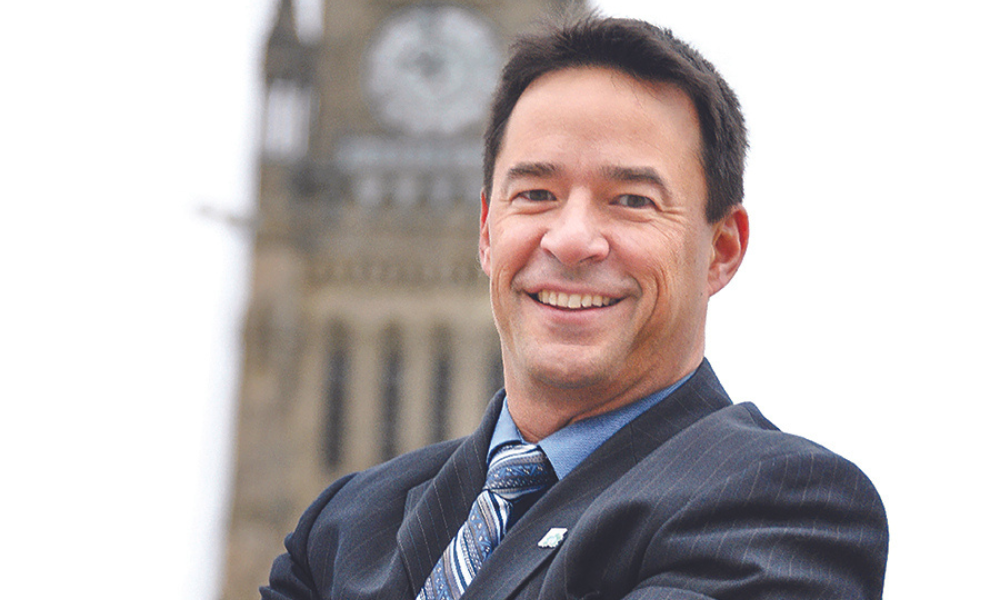Housing starts surged in June – but have trended unevenly throughout the year

A rollercoaster year to date for home construction in Canada continued last month, with the pace of housing starts unexpectedly seeing a big surge after slowing in May.
Canada Mortgage and Housing Corporation (CMHC) said last week that housing starts accelerated at their fastest clip for a decade in June, hitting a seasonally adjusted annual rate of 281,373 units compared with just 200,018 in May.
That continued the bumpy trajectory for housing starts throughout 2023 to date, with no two consecutive months seeing the same direction of travel.
January housing starts fell by 13% over the end of 2022, but February saw the pace of home construction rise by the same percentage.
In March, the monthly seasonally adjusted annual rate fell by 11% before spiking in a 22% month-over-month April jump and falling in May by 4.2%.
Rising interest rates and borrowing costs have weighed down on residential construction throughout the year to date, with CMHC posting a grim forecast for the likely pace of housing starts for the remainder of this year and next.
The agency said in April that the number of starts in 2024 isn’t expected to rise above 224,000, a steep fall from the pace of approximately 271,000 units set two years ago.
Its chief economist Bob Dugan said that was an “alarming” forecast, with affordability climbing further out of reach for scores of prospective buyers amid a sluggish pace of home construction.
The annual pace of #housingstarts saw its largest monthly increase in a decade in June, with the commencement of work on new multi-unit projects contributing to a huge gain over May.https://t.co/gkGzCBv1rj#breakingnews #mortgageindustry #mortgagebroker #housingmarket
— Canadian Mortgage Professional Magazine (@CMPmagazine) July 18, 2023
How are higher rates weighing down on the pace of home construction in Canada?
The outlook doesn’t appear to have improved much in the ensuing months. There had been some optimism that an apparent pause on Bank of Canada rate hikes might light a fire under the housing market and home construction – but the central bank has now increased its benchmark rate twice, in consecutive 25-point hikes, after appearing to hold fire in the spring.
That has seen construction costs rise once again, all but copper-fastening the likelihood of a subdued overall pace of home starts by the end of the year, according to the chief executive of the Canadian Home Builders’ Association.
“We saw a tremendous slowdown through all of the rate hikes last year in terms of sales and we’re going to see a drop in housing starts this year,” Kevin Lee (pictured top) told Canadian Mortgage Professional. “There’s no question the two [recent] rate hikes are going to contribute to that further – there’s just no way around it.
“It’s going to result in fewer purchases. It’s challenging for a builder and developer, and even our renovator members looking at doing new infill work. So we’re going to see less supply coming online, which is the exact opposite of what we need – [that’s] why we’re calling for the federal government to make some moves that’ll offset the effects of these higher interest rates.”
Some relief for homebuyers in two surprising locations – Toronto and Vancouver
Supply actually appears to be “crawling back up” in Canada’s housing market despite the lacklustre pace of housing starts, according to RBC, with new listings rising at a faster rate than sales for two consecutive months in May and June.
Still, 5.5% growth in new listings last month compared with May will do little to address the overall inventory crisis facing the country, the bank’s assistant chief economist Robert Hogue suggested.
According to the Canadian Real Estate Association (CREA), the 3.1 months of inventory available on a national basis at the end of June was down by more than a month from January, and well below the long-term average for that measure of about five months.
“A lot more supply is needed to bulk up historically-low inventories,” Hogue said. “Buyers still face a scarcity of options in the majority of markets, tilting the scale in favour of sellers.”
That said, Toronto and Vancouver – two of Canada’s most notoriously overheated housing markets – are seeing price appreciation at a more modest rate than might be expected this year, Hogue said, with “sizable increases in new listings” and stalled or declining resales helping loosen tight demand-supply conditions.
“Their respective sales-to-new listings ratio has returned to a balanced setting,” he noted. “If sustained, we would expect this to moderate [the] rate of price appreciation in the period ahead.”
Make sure to get all the latest news to your inbox on Canada’s mortgage and housing markets by signing up for our free daily newsletter here.



